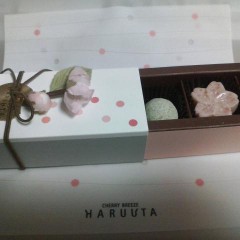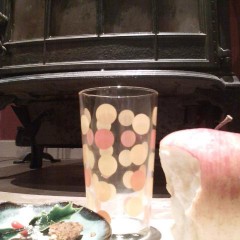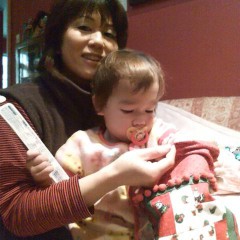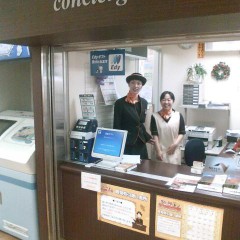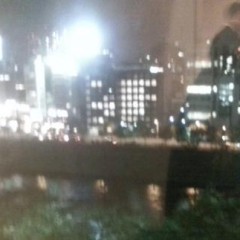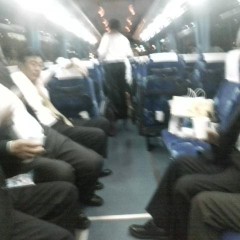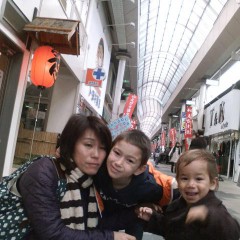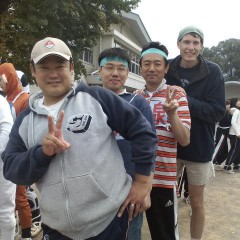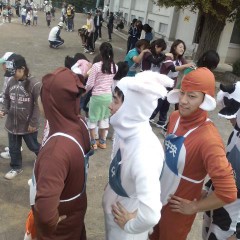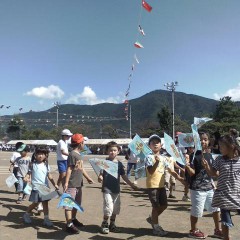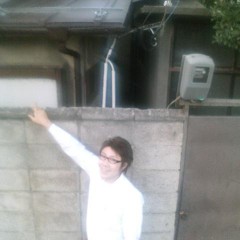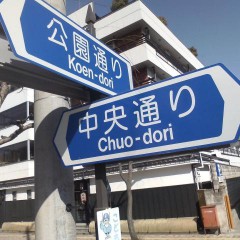
尚且つ、英語表記も!Turn Here for Kamesei!
アメリカと日本の道や住所の表記がずいぶん違います。悪いけど、アメリカの勝ちです。完全に。
例えば、我がシアトルの家住所が3434 15th Ave. Sでした。つまり、南15通り3434.そして、最初の34がストリートの意味。(アベニューは南北、ストリートは東西。)という事で、15番アベニューと34番ストリートの交差点から17件目(34件目じゃない:奇数と偶数によって道の右・左が決まる。)
住所で距離も分かります。10ブロックが大体1kmです。ですから、家から例えば2356 5th Ave. Sへ行くのに、だいたい1kmを上って、左横また1kmぐらいって分かる。
それと比較したら、亀清の住所は千曲市上山田温泉2-15-1です。視の中の地域の中の丁目の中の何でしょう?ここは自治会の11区です。ですから、亀清が上山田温泉の11区の、例えば1番ブロックの1っ件目なら住所が「千曲市上山田温泉11-1-1になってもおかしくない。2-15-1はどこから来た?隣の薬局が2-11-2です。道挟んだ衣料品屋さんは2-10-8。裏の立ち寄り銭湯は2-18-8.皆は2丁目まで一緒ですがその後はどういう計算?住所の順番になにかロジックがあれば、教えてください。
そして、さらにややこしいのは道です。殆どの道は名前が付いていない。うちのシアトルの家の場合、「高速道路からコランビア通りを登って、15番アベニューで左折、右側の三件目」。簡単です。亀清の場合は「万葉橋を渡って、文化会館で右、ガススタンドを越えて信金の銀行で左を曲がって、真正面。」つまり、道名じゃなくて目印で道を案内しなければならない。
普段は日本の道は名前なしですが、見事に亀清の通りは名前ありです:公園通り。本来なら、「万葉通りを通って、中央通りで右折、2つ目の左、公園通りに曲がって真正面」と言いたいけど日本人は道の名前を見るのに慣れていない。従って、「そのガススタンド、あの会館」など。
Addresses and street numbering systems are entirely different between Japan and the US. America's system is much better. Allow me to explain.
Back in Seattle, our house's address was 3434 15th Ave. S. That meant 17 lots in (not 34 -- odd numbers on the west side, even on the east) from the intersection of 15th Avenue and 34th Street. Avenues run north-south, streets east-west. Simple and logical. And the system gave you an idea of distances, too. 16 city blocks make up a mile. So if we wanted to go to 1st Ave. S and 17th, we know it's a mile ot the north and a mile west.
Here in Japan, addresses are made up of cities, neighborhood, "chome" sub-areas, and it goes into finer detail from there. So Kamesei is Chikuma City, Kamiyamada Onsen (=neighborhood), 2-chome, 15-1. However, our local governing district is Kamiyamada Onsen #11, so if we were on the first block in area #11, and the first lot on the block, then I could understand Chikuma City, Kamiyamada Onsen 11-1-1. But no, it's 2-15-1. And our pharmicist neighbor is 2-11-2, the clothing shop across the street is 2-10-8, and the Sento Bathouse behind us is 2-18-8. At least we all have the same 2-chome, but none of the other numbers have any order to them. Aargh!
And street names here are another issue. There hardly aren't any. For our house in Seattle, we used to tell people to go up Columbia Way from the freeway, turn left on 15th, and we're the 3rd house in on the right. Here for Kamesei, we tell our guests, "Cross the Manyo Bridge, turn right at the Culture Hall, pass the gas station and turn left at Shinkin Bank -- Kamesei will be directly ahead."
Actually, the street Kamesei is on does in fact have a name. So in theory, I could give directions as "Take Manyo Street, turn right at Central Avenue, then the 2nd right, Park Way, and we'll be straight in front of you." But nobody here looks at street signs, so we're stuck using landmarks.
